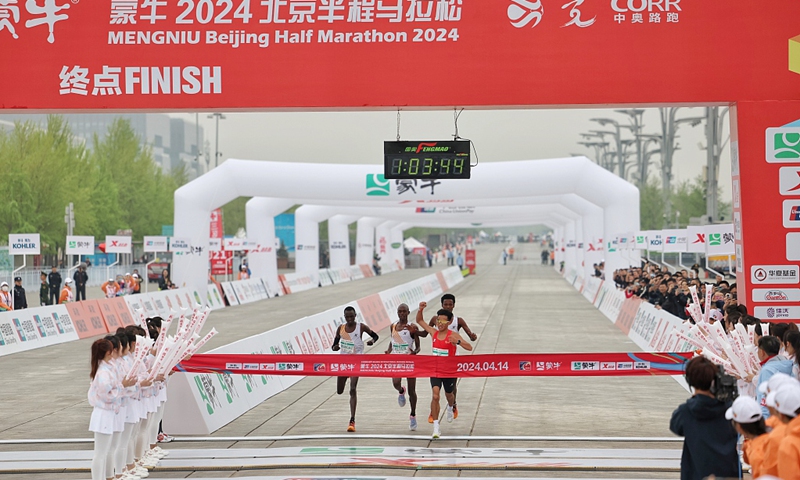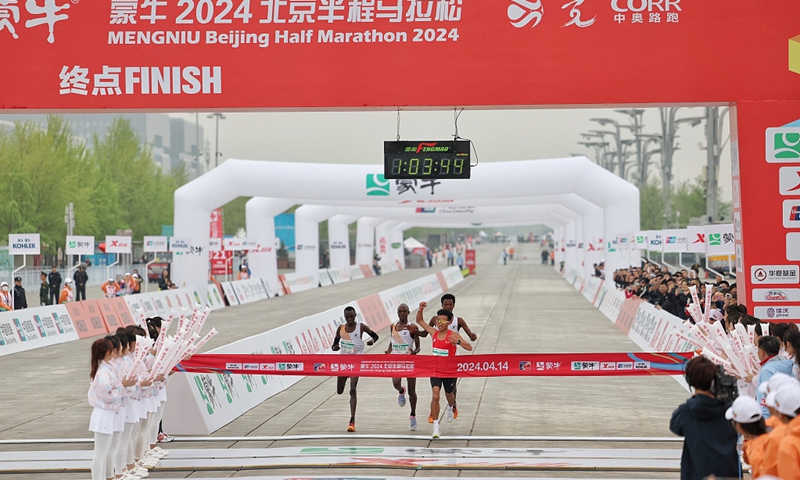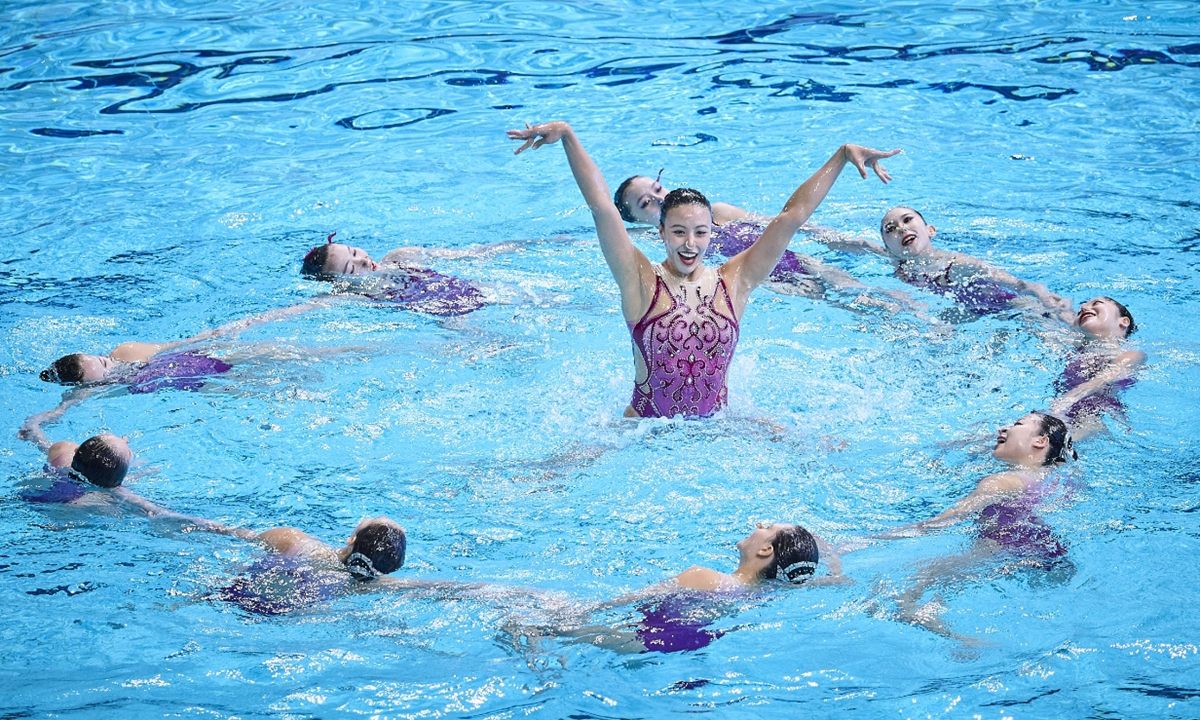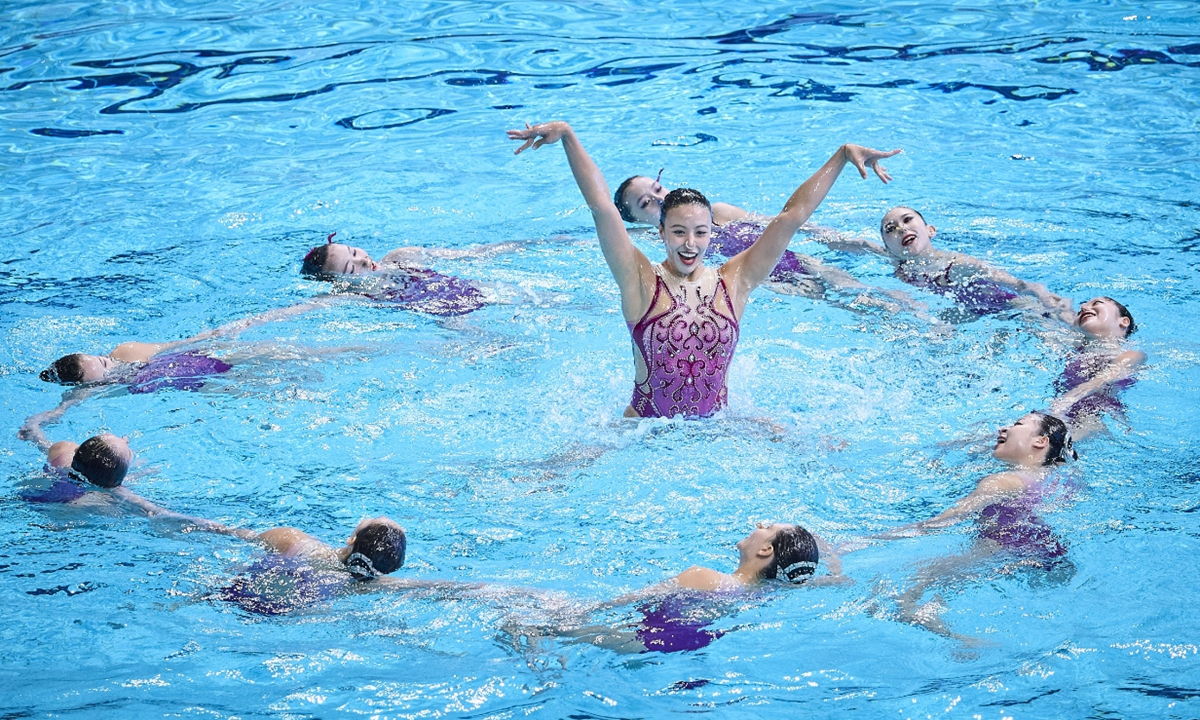
He Jie crosses the finish line of Beijing Half Marathon on April 14, 2024. Photo: VCG
He Jie, men’s champion of the 2024 Beijing Half Marathon (BHM) on Sunday, has been entangled in controversy as he allegedly won the race thanks to three African contenders letting him cross the finish line first. The incident is still under investigation, said one of the event partners on Monday.
The 25-year-old Chinese runner won the marathon with a time of 1 hour, 3 minutes and 44 seconds, a mere second ahead of Ethiopian Dejene Bikila and Kenyans Robert Keter and Willy Mnangat.
However, footage of the race shows that He was behind the three African runners down the final stretch. Instead of sprinting to the finish line, the three African contenders were seen to look back and waved He out in front while appearing to slow down. He, the national marathon record holder, eventually overtook them and won the race by one second.
Xtep, one of the event partners of the BHM, said on Monday that investigations are underway and further information will be provided as soon as possible.
“We have received reports from the residents and are investigating the incident. We will keep the public informed of the updates,” said an official from the Beijing Municipal Bureau of Sports after the race.
The incident has sparked heated discussion on X-like Sina Weibo with many netizens questioning the fairness and authenticity of the event.
“The race is a disregard to the meaning of sportsmanship. It is not only disrespectful to other athletes, but also profanes the spirit of sports,” said a netizen on Weibo.
On April 12, the General Administration of Sport (GAS) released the “Management Measures for Sports Event Conduct and Discipline,” emphasizing that justice and discipline is the lifeline of sports and a crucial link in the construction of a healthy sports development ambience.
The GAS maintains a “zero tolerance” towards issues regarding violations of sports conducts and disciplines, aiming to further increase supervision and punishment from the root and institutional levels and purify the environment for sports development.
This spring, numerous cities across China have seen marathons enter full bloom. About 40 marathon events took place in China during the last weekend of March with more events slated to escalate the road running craze in April.
Both the Wuxi Marathon in East China’s Jiangsu Province and the Wuhan Marathon in Central China’s Hubei Province have set new records with registration numbers of more than 260,000 people.
During the Wuxi Marathon held on March 24, He Jie broke the men’s national marathon record with a time of 2 hours, 6 minutes and 57 seconds.
While professional athletes push their limits and amateur participants pursue physical fitness, the fervor of marathon events has largely spurred the local economies around the host cities, offering a fresh catalyst to local development in culture and tourism.


